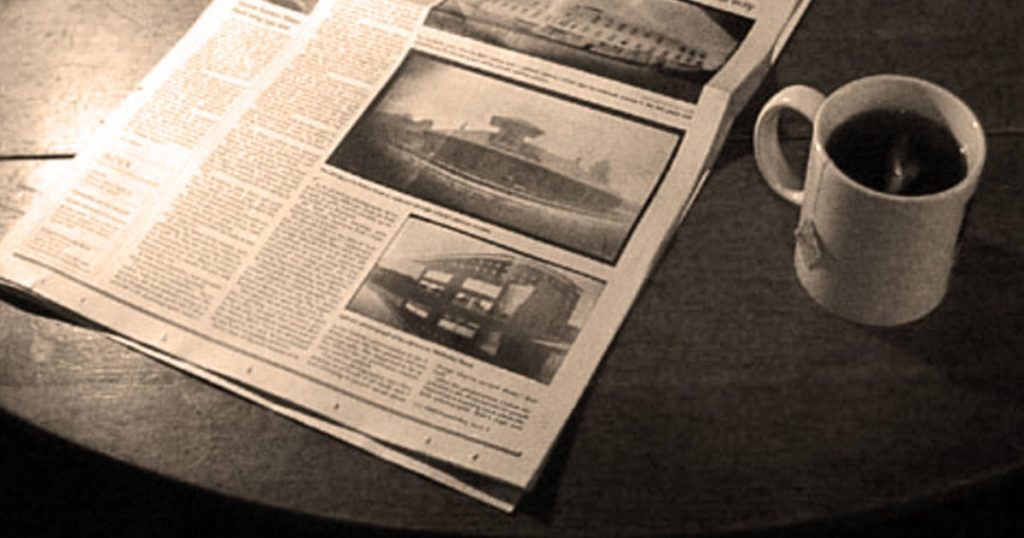Sundays are for doing all the errands and prep you won’t have time for in the week because it’s half-term. But we can also sneak in some downtime for reading and watching fine video games writing.
Criticism is cruelty, writes game developer Oma Keeling. This isn’t an argument against criticism, but a plea for a more honest embrace of why we write and enjoy writing critically. As someone who, through The Sunday Papers, seems to forever be arguing for a more ruthless games press, I appreciated this.
you have to sit with the fact that criticism is a thing that makes people unhappy, and that this isn’t an unrighteous response borne out of a misunderstanding of the rules of the game.
I want games journalists to be more critical because most games are, basically, fine. Our response to an onslaught of basically-fineness should not be to award everything a seven out of ten (or the prose equivalent), but to raise our standards. Video games can rock you back, fuck you up, change your life, and yet the discourse still overwhelmingly approaches them like products, rewards iteration, and sweeps personal feelings of ennui underneath a qualifying, “well, you’d like it.” I don’t think such mealy-mouthed opinion writing causes more mediocre games to be made, but I do think it blunts the edges of our persuasive toolkit when a truly special and different video game does come along.
Where was I? Oh yes, links. Superhot VR’s story was stripped from the game some years ago. I either didn’t notice or forgot. GiovanH has written a long but interesting article about what was removed and the developer’s reasons why. This sits at the intersection of consumer rights and authorial control and you’ll all have strong opinions about it.
Piotr clearly isn’t at all concerned with audience consent here, as he’s trying to impose a specific artistic vision on people and actively fighting them to do so. He sees a problem here, but it has nothing to do with consent. The problem as he understands it is that the existing art is objectionable in such a way that the only adequate “solution” is to fully obliterate it.
The Pokémon logo hasn’t changed since it was first created in the ’90s by Seattle-based designer Chris Maple. For IGN, Rebekah Valentine tracked Maple down and interviewed him about the making of an enduring icon.
Normally, Maple tells me, a logo like this would take something like six months, with lots of back and forth between the designer and client, drafts and redrafts. Nintendo’s one month deadline wasn’t arbitrary, though. The new logo had to be ready for the big unveiling of Pokémon Red and Blue that would take place at E3 1998.
American newspaper Chicago Sun-Times sent out an edition with an insert that included an article of 2025 summer reading picks. The problem? Many of the books were made up, because the article – and some of the rest of the insert – was AI generated.
Polygon senior video producer Simone de Rochefort kept her job after the site’s recent sale to Valnet, unlike many of her colleagues. This past week she made public an email she sent to Vox Media CEO Jim Bankoff, which is understandably enraged. Corporate sales, acquisitions and mergers can suck for employees whether they get to keep their jobs or not.
Former Polygon EiC Chris Plante has also now launched his podcast and Patreon, with the first five minutes of the first episode available for free to all.
Bandcamp is corporate-owned and thus its future is reliant upon the whims of fickle CEOs. Subvert promises to be an artist-owned co-op alternative, although it hasn’t yet launched. One to watch.
Bryant Francis wrote for Game Developer about the “deprofessionalization of video games”.
To go back to Rigney for a moment, his key example of a post-deprofessionalization game developer is veteran developer Aaron Rutledge, a former lead designer on League of Legends, Call of Duty: Black Ops 4, and Apex Legends. After leaving Respawn Entertainment in 2024 he founded a consultancy firm Area Denial, acting as a “gun for hire” for studios.
I haven’t had a chance to watch all of it yet, but at least the first twenty minutes of NakeyJakey’s video on Counter-Strike taking over his life is good.
This past week I have been specifically listening to music that I think will increase my dopamine levels. This has led to me revisiting The Chemical Brothers for the first time in ten years and listening or re-listening to every album they’ve ever released. What a catalogue! Far too many great tracks to reasonably encapsulate with just a couple of picks. And yet, I pick Wide Open and Saturate. My dopamine, it is jacked.


